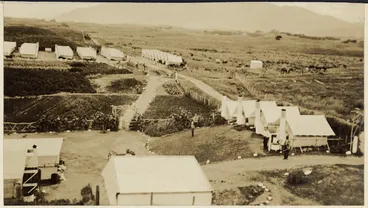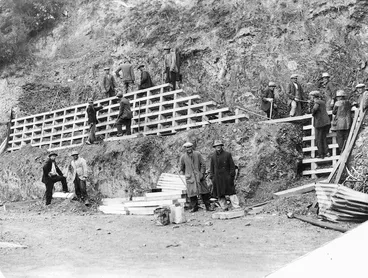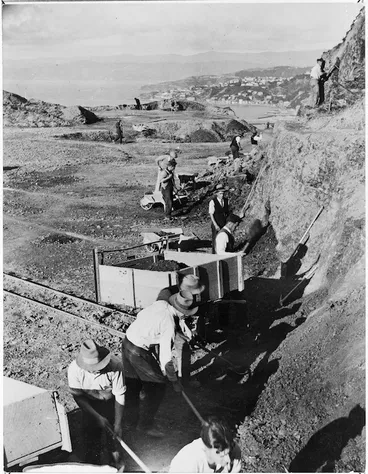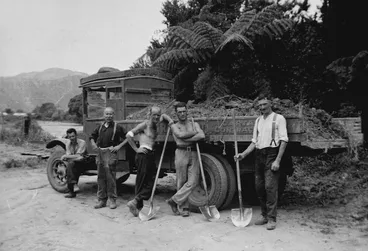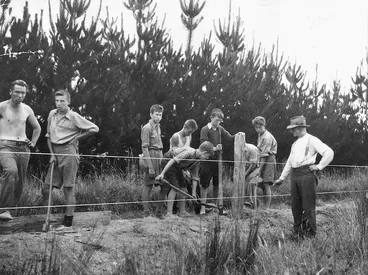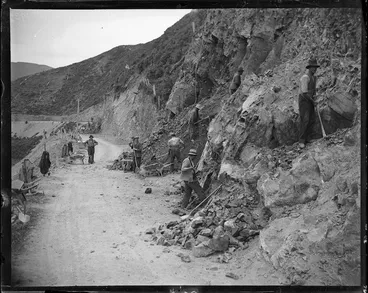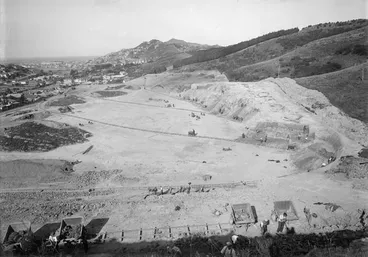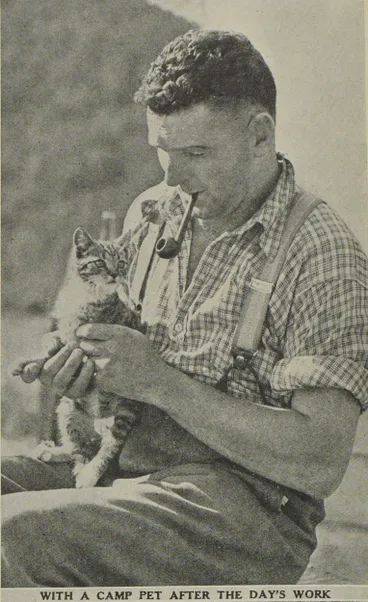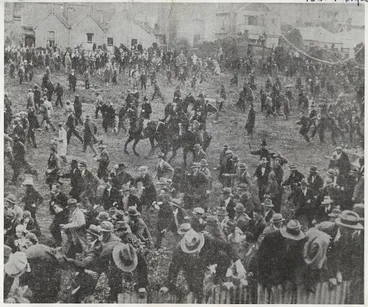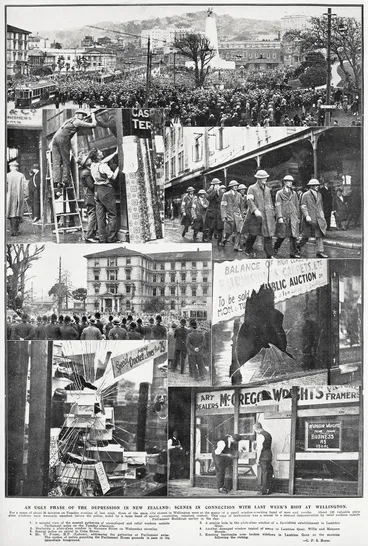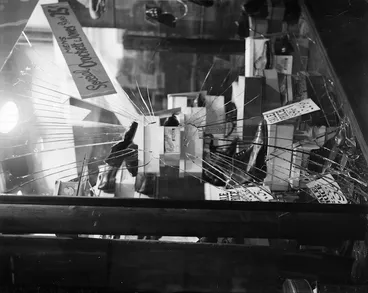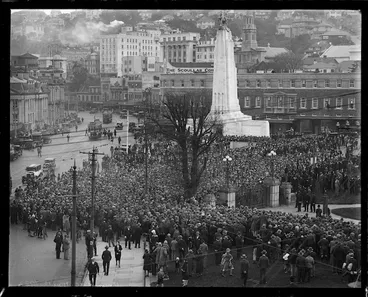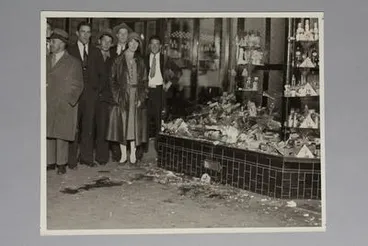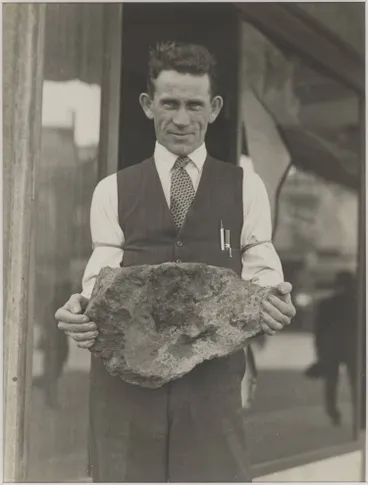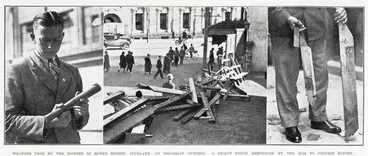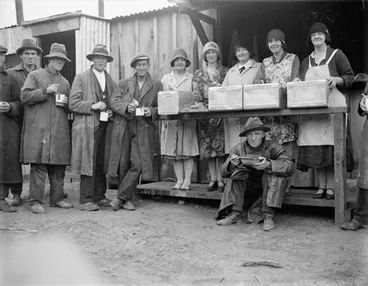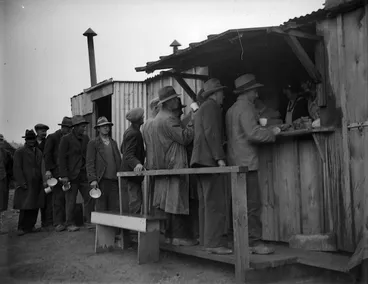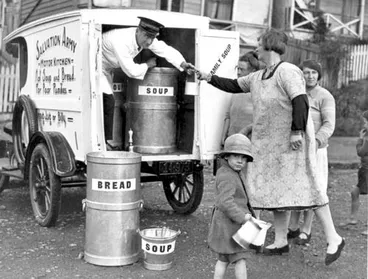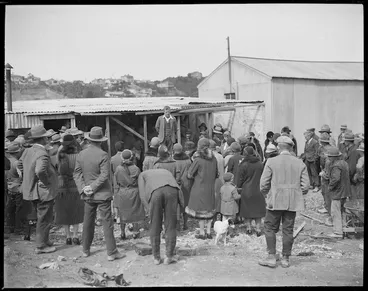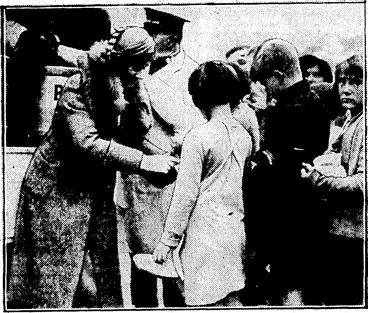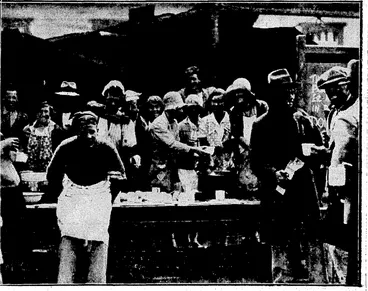The Great Depression — work camps, riots and soup kitchens
A DigitalNZ Story by National Library Services to Schools
This collection of images of work camps, soup kitchens and riots during the Great Depression in Aotearoa New Zealand bears witness to the tough economic situation people faced on a daily basis combined with the frustration of being unemployed.
THE GREAT DEPRESSION WORK CAMPS
By the end of 1930 urban businesses and manufacturers were feeling the flow-on effects. Demand for their goods and services fell, as did the prices they charged. Unemployment rose to 12% of the registered workforce in 1933, and those lucky enough to keep their jobs often found their wages slashed by as much as 20%.
The government tried to ease Depression conditions through unemployment relief schemes, which often required men to travel long distances for small pay.
Source: Politics and Government — The New Zealand Legion, NZHistory.
Soldiers work relief camp at Paraparaumu, Kapiti Coast
Alexander Turnbull Library
Unemployment relief work during the Depression
Alexander Turnbull Library
Relief workers working on an earth moving project, Wellington
Alexander Turnbull Library
Relief workers at Gracefield
Alexander Turnbull Library
Unemployment relief work during the Depression
Alexander Turnbull Library
1932 Forest Service report
Manatū Taonga, the Ministry for Culture and Heritage
Road making by unemployed men during the Depression, Akatarawa
Alexander Turnbull Library
Building Hataitai Park
Manatū Taonga, the Ministry for Culture and Heritage
THE GREAT DEPRESSION RIOTS
During 1932 unemployment protests turned violent. On 9 January in Dunedin, hungry unemployed workers rushed Wardell’s grocery store, but were prevented from looting by police. On 14 April thousands of Auckland protesters were unable to get into a town-hall meeting. As their leader, Jim Edwards, rose to speak, he was struck down by a police baton. This created uproar: protesters ran down Queen Street smashing windows and looting shops. On 10 May 4,000 protesters in Wellington marched to Parliament. After an unsuccessful deputation to Prime Minister George Forbes, a small part of the crowd rushed along Lambton Quay, breaking shop windows. The next day protesters at a Cuba Street rally were charged and batoned by police.
Source: Government and Nation — Public protest, Te Ara — The Encyclopedia of New Zealand
Creator unknown :Photograph of the 1932 Cuba Street riot, Wellington
Alexander Turnbull Library
Broken shop window of Brady's Boot Shop, Lambton Quay, Wellington, after a riot
Alexander Turnbull Library
Crowd of unemployed demonstrators at the gates of Parliament Buildings, Lambton Quay, Wellington
Alexander Turnbull Library
Queen St. riot
Auckland War Memorial Museum Tāmaki Paenga Hira
Lawless outbreak in Queen Street, 1932
Auckland Libraries
THE GREAT DEPRESSION SOUP KITCHENS
Soup kitchens run by a range of voluntary organisations during the 1930s depression provided hot meals for unemployed people.
Source: Voluntary welfare organisations — Soup kitchens, Te Ara — The Encyclopedia of New Zealand.
Soup kitchen
Manatū Taonga, the Ministry for Culture and Heritage
Soup kitchen, Wellington
Alexander Turnbull Library
Social services: mobile soup kitchen, 1931
Manatū Taonga, the Ministry for Culture and Heritage
Scene during the 1930s depression, Wellington, probably at a soup kitchen
Alexander Turnbull Library
This story was curated and compiled by Te Puna Mātauranga o Aotearoa | National Library of New Zealand, Services to Schools staff, May 2022.
